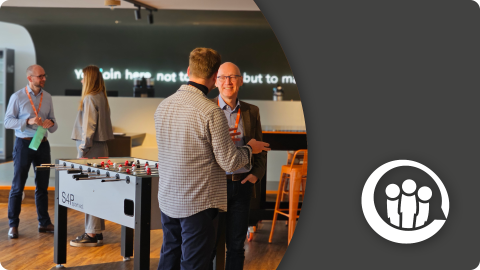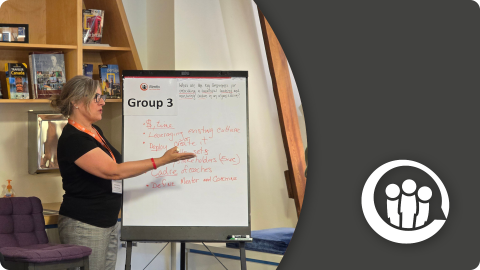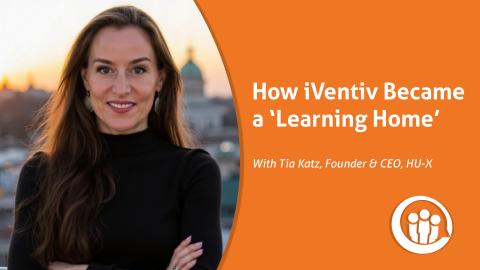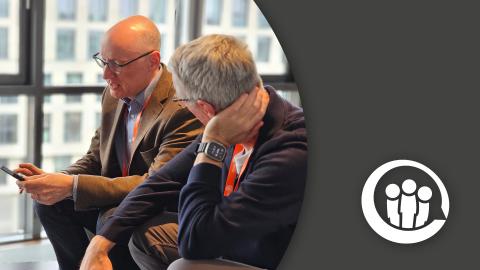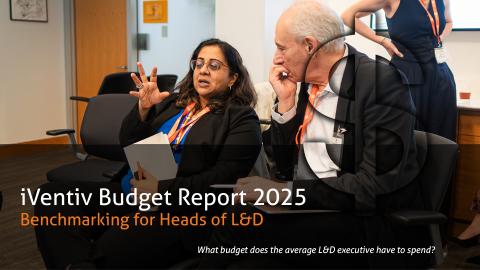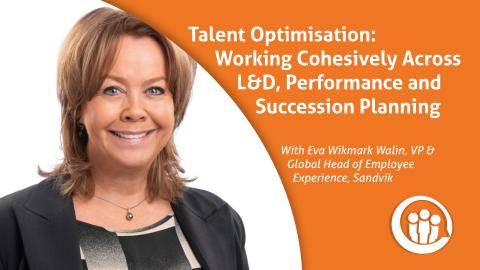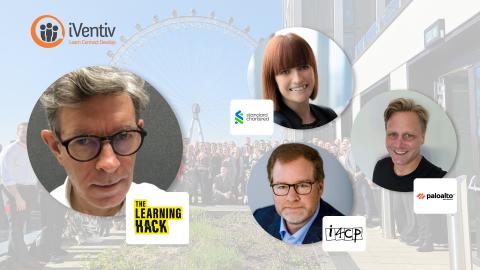Matt Smith is an Executive Coach, Leadership Advisory, and former Chief Learning Officer at McKinsey & Company. Speaking to iVentiv's Temi B, Matt discussed the habits that make a successful learner, techniques for developing intentional learning, plus ideas to help CLOs work with business leaders. For Chief Learning Officers, these are perennial questions, but Matt says they are tractable ones as well.
How do you develop a culture of intentional learning?
Talking about intentional learning, Matt says that learning executives, CLOs, and learning leaders across the board are trying to create "a culture where people take advantage of the learning opportunities that are available to them." In short, he says, learners have to be "hungry for it". Based on his work, Matt believes that "it's one thing to have access to learning opportunities and hopefully they're high quality, but you actually need to foster the skills and mindsets of how to be an effective learner."
But there are things that effective learners do that most others don't. The small habits, every day, that put them in a position to learn well. "There are ways that they go about their day, go about their work, that maximize the amount of learning that they pull out of all of the opportunities they have and maximize the excitement they get from the learning that they do. And so we started looking into what are those elements? What do the best learners do? What can we learn from them? And then how do you actually start creating an organisational context where these things are fostered and promoted?"
What does it mean to have a curious mindset?
One of the first things that effective, intentional learners have is a curious mindset. "I think that, to me, curiosity is all about a desire to learn more about things," Matt says. What are people thinking? What's happening? Why does someone have a different approach to this problem than you? Curiosity isn't something you have or you don't have, he says, it's something you can practice and foster.
"You can always keep getting more and more curious about things in life." With curiosity goes a growth mindset, a desire to grow and a genuine belief that you can grow. "If you believe that you can learn and you believe that learning is exciting and something you want to do and you're motivated to do then you're going to put more energy and intention into your own learning."
What are the core habits of effective learners?
"There are a few core habits that people who are effective learners put into place and I would say many of us probably do some of these things," but Matt adds that "we may not realise that they are what makes us effective as learners, we may just do them naturally." But the effective learners do these things habitually.
"Number one," Matt explains, "people set clear learning goals for themselves." As a mental benchmark Matt recommends setting goals over a three-month period. Focus on specific areas of your own development, separate to the business goals and metrics that you need to hit. What are you trying to learn? Is that clear? Are those goals discreet enough and clear enough for you to assess whether or not you're making progress? Then, go over those goals over and over and over again.
Then, get feedback. "Not just being open to feedback, but actively seeking out feedback and helping other people give you better feedback by priming them with your learning goals." If you tell people what you're working on, they can give clearer and more focused feedback.
None of this is rocket science. "They're not that hard to build into your day-to-day, but very few people do them all consistently because they do take some effort and intention to put into place."
How do you cultivate effective learning habits on an organisational scale?
There are a few things that CLOs can do, Matt explains. The first is very simple. Teach your people how to learn. "We teach so many things in our organisations but very few organisations actually help people become better learners and teach these types of basic practices." Put it in onboarding, in basic manager training, at all the "pivotal moments in someone's career."
Secondly, CLOs have to be role models. "What does it mean to approach questions with a beginner's mind? How can leaders talk about what they're learning, what they're seeing?" Matt talks about Satya Nadella's approach at Microsoft, going "from a know-it-all culture to a learn-it-all culture." You don't always need the answers to everything, but "if you approach everything with a learning mindset, the company is going to be so much more innovative and it's going to be more exciting for individuals."
More than that, encourage learning at all levels. "So in those moments of truth where someone wants to, for example, invest in their own learning, how is that handled? Is there pushback? Do people encourage it or not? So there's something in addition to the skills of effective learning." Managers and leaders have to encourage and celebrate learning.
How do you develop leaders who are role models for your learning culture?
It's hard to push anything through if an organisation doesn't want it, Matt reflects, and not just in a learning context. If leadership isn't behind the change, then you have to tackle the problem. But more often, he says, the problem is that people are "well-intended but unskilled." That problem, he says, is one that you can do something about.
In that scenario, ask yourself what you can do to help develop leaders with skills of inquiry and curiosity. Leaders who try to understand and try to help people understand, rather than coming in with a predetermined set of answers. "These are things that we can actually develop in leaders, and those of us who are CLOs and are looking after this sort of thing can help our leaders develop."
But you can also develop the skills of being an effective learner from the bottom up. "It's obviously ideal if you've got everyone on board and it's being pushed by leadership, but some of these skills that we're talking about, frankly, they just make people better at their job." Matt says you need to encourage your people to squeeze "the most juice out of every moment that they have, developing faster, learning new things faster." Do that often enough and you will start to see results, "even if you don't have the same level of senior sponsorship that we all know would be ideal."
Matt will be joining iVentiv again as the Chair of Learning Futures Copenhagen, 10-11 May 2022. Find out more here.
Matthew Smith, former Chief Learning Officer of McKinsey & Company, has played a dynamic role as Session Facilitator at several in-person and virtual iVentiv events in recent years. At McKinsey, Matt was responsible for the strategy and execution of leadership development programs for over 30,000 colleagues globally, and led a major transformation of the L&D function. Prior to his role as Chief Learning Officer, Matt served as McKinsey’s global Chief of Staff and was a client-serving Partner leading the Pharmaceutical Organization practice globally. He also spent three years as a member of the firm’s Partner Election Committee.
Matt currently serves as an executive coach and leadership advisor to senior leaders, and as faculty for leadership development programs with both McKinsey and Mobius Executive Leadership. He has also authored several articles on learning and talent topics, with a focus on identifying the mindsets and habits of the most effective learners.

